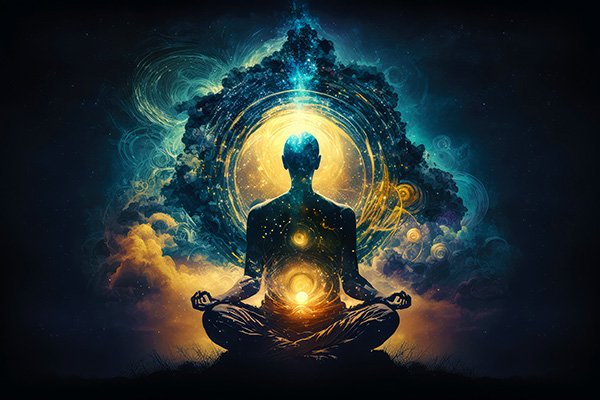heart-center
Staying Spiritually Nourished In A Digital World
 If you’re feeling stuck in cycles of anger, sadness, anxiety, or fatigue, take a moment to ask yourself: what am I consuming?
If you’re feeling stuck in cycles of anger, sadness, anxiety, or fatigue, take a moment to ask yourself: what am I consuming?
This question goes far beyond food. Are you consuming negativity online? Are you surrounding yourself with people who drain rather than uplift? Are you spending more time in front of a screen than under the sky?
Everything you consume and engage with in this world either feeds your inner light or diminishes it. Everything you watch, listen to, interact with, and invite into your life.
This truth is simple yet profound. We may not always realize it, but the choices we make each day either nourish our spirit or cloud it.
In today’s world, it’s easy to become entangled in habits, distractions, and energies that gradually drain our vitality. The barrage of social media updates, the constant hum of technology, processed foods, fear-driven news cycles, anger, jealousy, dishonesty, and gossip. All of these things can chip away at the divine light within us, if we let it.
On the other hand, there are sacred and intentional choices that can uplift and energize us. Fresh fruits and vegetables grown with love from the Earth. Gentle sunlight warming your skin. Time in nature, listening to the rhythm of the trees and the whispers of the wind.
Loving and conscious relationships. Forgiveness. Kindness. Generosity. Dance, art, singing, and the tender beauty of genuine joy. These are not luxuries. They are lifelines to your highest self. They feed your light. Continue reading
The Empath’s Sacred Gift Of Compassion
 Being an empath is more than just having a high sensitivity to the suffering of others. It is also the sacred gift of compassion. Empaths do not only perceive other people’s pain, but we also want to soothe, heal, and uplift them. These twin gifts of discernment and compassionate action are inseparable.
Being an empath is more than just having a high sensitivity to the suffering of others. It is also the sacred gift of compassion. Empaths do not only perceive other people’s pain, but we also want to soothe, heal, and uplift them. These twin gifts of discernment and compassionate action are inseparable.
I have yet to meet an empath who doesn’t feel the calling to alleviate suffering in some way. In a world that so often feels cruel and chaotic, our tender hearts are now needed more than ever.
Compassion, both inward and outward, is a powerful force. It can transform relationships, heal roots of insecurity, and reshape the texture of our inner lives.
In leadership settings, compassionate responses consistently foster trust, deep connection, and lasting loyalty. Harsh reactions, on the other hand, often erect walls and breed resistance.
When someone feels seen, supported, and deeply cared for, their loyalty and dedication follow naturally. This principle applies not only in professional spheres but in every relationship we nurture.
I’ve come to see self-compassion as just as vital as the compassion we extend to others.
Empaths especially can be our own harshest critics. We measure ourselves against external standards and comparisons, often coming up short in our inner dialogue. But offering ourselves a warm, non-judgmental embrace opens new doors: to deeper confidence, heightened clarity, and a grounded sense of worth that doesn’t depend on outperforming someone else.
Always Choose Your Gut Over Your Heart And Mind
 We all have a higher purpose in this lifetime, and yet many never awaken to it, much less achieve it, because their ego has become more prominent in their lives than their higher self.
We all have a higher purpose in this lifetime, and yet many never awaken to it, much less achieve it, because their ego has become more prominent in their lives than their higher self.
How do you know if what you are doing is for your highest good? How do you make sure you are aligned with your soul purpose? How do you know if what you want out of life is based on your worldly desires instead of your spiritual mission in this lifetime?
Well, you listen to your inner guidance. You trust your intuition. You follow your gut.
When you were born, a deep-seated dream was placed within you. As children we are often more in touch with our true calling or purpose, but many of us lose that awareness as we grow older. Unfortunately, it has been buried by the expectations of society and the many distractions of the material world.
Often our parents, peers, teachers, and mentors play a significant role in this process of shutting down our spiritual awareness. Has anyone ever laughed at you when you told them what you wanted to do or be? Did someone say, “Go back and think about that because it will never happen”? Each of us has a different story as to why we do or don’t achieve our dreams in life.
Today is the day to decide, “I will achieve my dreams as long as they come from the spirit and are for my highest good.” It is time to look at your dreams for your life from a deeper perspective.
The Soulful Practice Of Kirtan Chanting
 An ancient spiritual practice less known in the West has transformed my spiritual routine in recent years. It is known as kirtan a beautiful form of devotional chanting that originated in ancient India.
An ancient spiritual practice less known in the West has transformed my spiritual routine in recent years. It is known as kirtan a beautiful form of devotional chanting that originated in ancient India.
The term “kirtan” comes from Sanskrit and means “narrating, reciting, telling, describing” of an idea or story, particularly in a religious context. This enchanting practice weaves together music, meditation, chanting, and a deep sense of spiritual expression.
Kirtan is a central practice in the Bhakti Yoga tradition, which emphasizes love and devotion to a personal deity. It involves the repetitive chanting of mantras and divine names, traditionally in Sanskrit, accompanied by musical instruments such as the harmonium, tabla, and cymbals.
Traditionally, kirtans focus on chanting the names of deities like Krishna, Rama, or Sita. The kirtan leader sings a line and the congregation responds, creating a rhythmic and melodic interplay that is both meditative and invigorating.
While Kirtan remains rooted in its spiritual origins, it has gained global popularity beyond India and the Bhakti tradition. As the practice of yoga has boomed worldwide, kirtan too has seen an immense rise in popularity. It’s a testament to the universal appeal and transformative power of this captivating practice.
Kirtan events and gatherings are known for being welcoming and inclusive, focusing on the shared experience of chanting rather than strict religious adherence. Unlike the typical musical experience in spiritual settings, kirtan invites everyone to participate in a soulful, call-and-response chanting that creates a profound connection to the divine and brings people closer together.
The Spiritual Heart Of Watermelon Tourmaline
 Watermelon tourmaline holds a special place in my spiritual practice, and in my heart! Not only is this captivating stone a feast for the eyes, it is also a powerful tool for personal and spiritual growth, especially in opening and healing the heart chakra.
Watermelon tourmaline holds a special place in my spiritual practice, and in my heart! Not only is this captivating stone a feast for the eyes, it is also a powerful tool for personal and spiritual growth, especially in opening and healing the heart chakra.
As a psychic practitioner, I have witnessed the transformative power of this gemstone in opening the spiritual heart. From a psychic perspective, its energy is a bridge to the heart center, helping us to connect more deeply with ourselves and others.
Watermelon tourmaline is a unique and visually striking variety of tourmaline that features a color gradient resembling the interior and exterior of a watermelon. This gemstone typically displays a vibrant pink or red center, surrounded by a green outer layer, mimicking the look of a watermelon slice. This distinctive coloration is due to the natural zoning of different trace elements within the crystal as it forms.
Its unique coloring symbolizes the harmonious blend of heart chakra energies, with the green representing the nurturing and healing qualities of the heart chakra and the pink embodying love, compassion and emotional warmth.
The heart chakra, or anahata, is the fourth primary chakra, located in the center of the chest. It is the bridge between the lower and upper chakras, connecting our physical existence with our higher spiritual aspirations. When balanced, the heart chakra emanates unconditional love, empathy and emotional balance. However, energy blockages in this chakra can lead to feelings of jealousy, resentment and emotional instability.
Embracing The Gift Of Empathic Insight
 Being attuned to the emotional energies of others is a beautiful gift that many spiritual individuals discover and enhance along their spiritual journey. This gift facilitates connection with others and provides insights into both others and ourselves.
Being attuned to the emotional energies of others is a beautiful gift that many spiritual individuals discover and enhance along their spiritual journey. This gift facilitates connection with others and provides insights into both others and ourselves.
While this empathic ability can bring profound understanding, it can also lead to anxiety. Feeling others’ emotions deeply may prompt self-reflection, causing concern about the impact of our actions on others and fear of judgment. Societal pressures become more intense, especially when expressing unconventional opinions, making those on a spiritual path feel isolated or misunderstood during a spiritual awakening.
How can we balance this empathic insight with personal expression and development?
Navigating meaningful relationships becomes challenging as our perspectives expand. Striking this balance requires self-reflection and working towards a more whole and heart-centered way of living.
Maintaining an open mind while expressing our own understandings is like a tightrope walk. We don’t want to become closed-minded, yet we need to articulate our perspectives and advocate for what we believe is right. A spiritual life is a journey of constant growth and understanding. Plateaus and challenges are part of the path, requiring breakthroughs to overcome.
